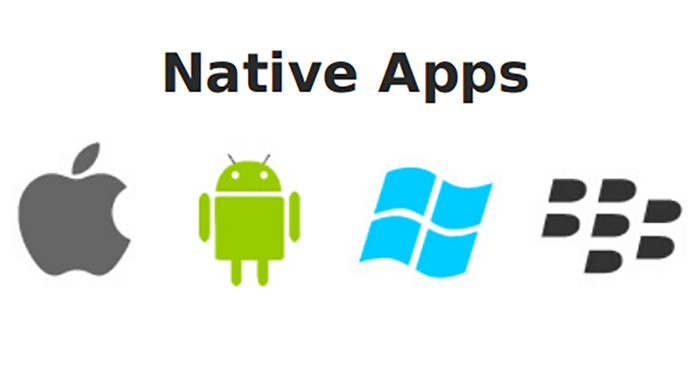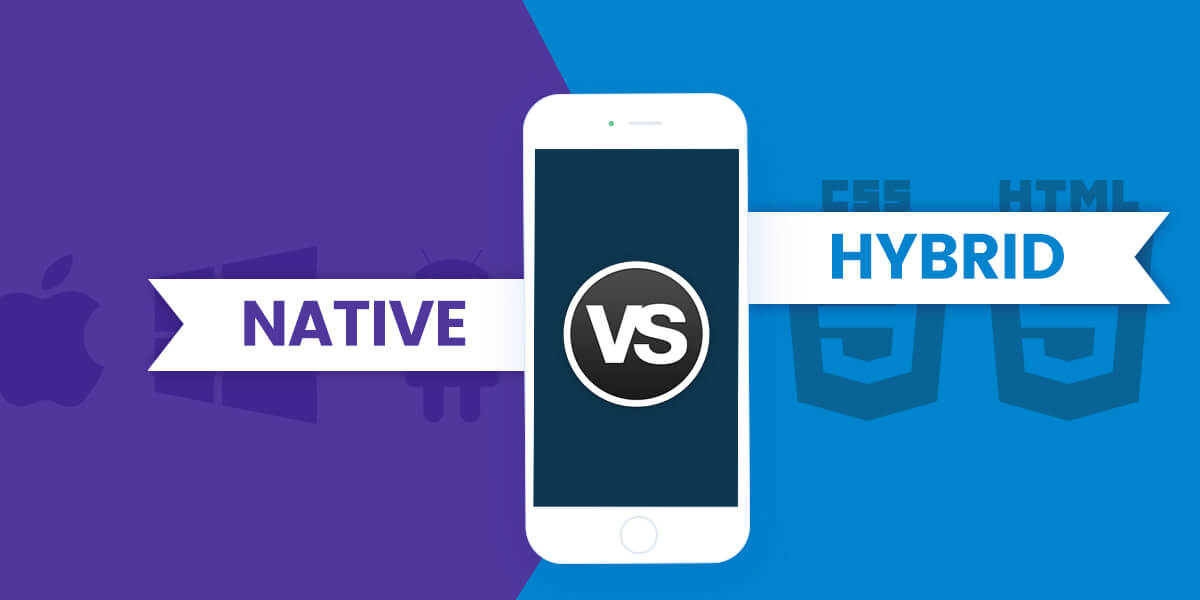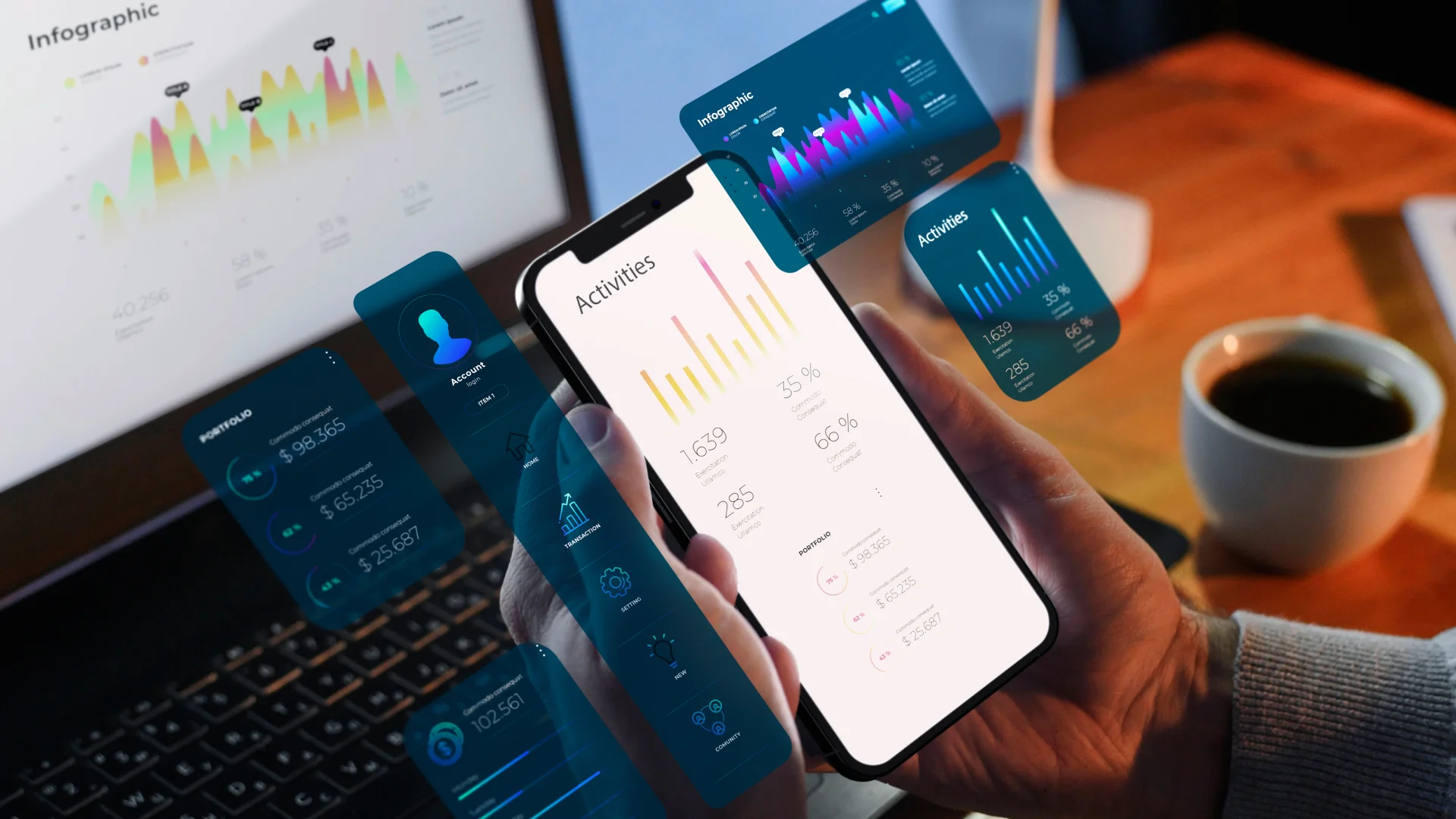Native vs Hybrid App: Which One is Ideal for App Development?
- Mobile
- October 2, 2023
Mobile apps are ubiquitous by their nature. An average American spends about two hours and fifteen minutes on apps every day. These aren’t just game apps. The downloads of non-game applications are on the rise.
In fact, their download rate will cross the $182 billion marker in 2020, chipping in a quarter of all the app downloads.
You can leverage this information to your business’s benefit. An app can reap numerous advantages for your venture including providing more value to the customers and building strong brand awareness.
It is not only a means to enhance customer service but serves as a marketing tool as well.
This significance of apps for your business is explained by their rising popularity among entrepreneurs. Several business sectors are exploring the potential of mobile apps.
Read also: How Mobile Application Offers Benefits to Different Industries
Examples of business apps that have been generating profits for businesses and ease for customers include the Debenhams and Zappos’ apps. They provide customers with a seamless shopping experience from their e-stores. At the same time, the apps attract more customers to these brands.
However, it is critical to know that only 16% of users give a mobile app more than two chances if it fails to work. The majority, 79% of people, give an app one or two shots if it doesn’t work correctly the first time around.
Therefore, your central concern regarding your business app is to ensure that it provides excellent user experience from the start.
When it comes to mobile app development for your business, customer experience trumps over all other factors. This brings us to selecting between native and hybrid apps.
Primarily, your choice between the two depends on the goals that your business pursues. Both the options boast their pros and cons, and you can weigh these through the lens of your business’s priorities.
What are Native Apps?
Native apps are built specifically for a single platform. There are based on programming languages, which are particular to one platform. These languages often tend to be Java or kotlin for an Android application and Swift or Objective-C for an iOS app.
Since these apps are developed in languages that are specific to a platform, they can only be used on that platform. For example, if you have developed an app for iOS, it will work for iPhone users only.
It won’t meet the needs of an Android user. So, you will have to get two versions of an app ready if you want to provide a business app for all two different platforms.
This has a bright edge to it though. Since the native apps are particular to a platform, these can access the full functionality of the device. This boosts their performance as well as speed. And if these are correctly developed, they can run without error.
Advantages of a Native App
Native apps tend to be faster and showcase better functionality than hybrid apps. If you are looking to put forth HD games, graphical applications or intensive animations, then a native app can support it better.
This is because these apps function faster than hybrid ones. Additionally, the Software Development Tools (SDK) for native apps are able to access the features of the device they run on.

Here are some of the critical merits of using native apps:
- These are responsive and fast
- Exhibit the best performance
- Allow more interaction, intuition, and smoother functioning in terms of user input and output
- Don’t necessarily require an Internet connection
- Provide enhanced user experience
- Allow app developers to acquire features of the given platform
Read also: Top Reasons Why You Should Go For Native Mobile App Development
Disadvantages of a Native App
These applications show a few demerits too. However, these issues can be handled:
- Slow development time
- The development costs are high
- Requires the app developer to be well-versed in the platform’s performing language
- Not such a worthy investment for simple apps
What are Hybrid Apps?
A hybrid application is based on a web view, which runs on a web application in a native app. It uses a native app wrapper that establishes communication between the web view and native device platform.

The hybrid app is considered native because you can download it from a platform’s app store just as a native app.
Hybrid apps are developed due to tools that link the native platform with the web view and allow them to communicate. These are third tools party like Apache Cordova.
Hybrid apps are built using languages such as CSS, HTML, and JavaScript. It’s called a hybrid because it contains two parts. The first one is the back-end code, which is built using the languages mentioned above. And the second part is that of the native shell, which makes the app downloadable.
Advantages of a Hybrid App
These applications don’t take extensive development time. You need to develop only one app, which will run on multiple platforms. The main pros of a hybrid app are:
- Less expensive development process
- Can be used on all platforms
- Provides access to the device’s API and it can acquire the camera, storage, etc.
Read also: Top Reasons Why You Need to Choose Hybrid Mobile App Development
Disadvantages of a Hybrid App
These apps come with the following cons:
- Slower in contrast with native apps
- Less interactive
- Moderate user experience
- Dependence on a third party wrapper
Comparing the Two: Native vs Hybrid Apps
The differences between native and hybrid apps are pretty clear. For one, native apps are built specifically for one platform, but a single hybrid app can work on many platforms. This leads us to the second difference of development language.
Native apps are chalked out in programming languages such as Java and Swift for Android and iOS, respectively. On the other hand, hybrid apps are made using web technologies like CSS, HTML, and JavaScript.
Thirdly, since native apps are specific to one platform, you will need an app developer that is skilled and understands the languages particular to the platform. This translates into more effort, money, and time that is required for the development process.
In the case of hybrid apps, this is the exact opposite. Development time is not long, and a single app runs on all platforms, so you need only one mobile app for your business.
Lastly, native apps provide a better user interface and enhanced speed than the hybrid ones.
In fact, native apps are highly credited for their speed and performance. This makes them suitable for demanding and processor-intensive apps like audio-processing and 3D games applications.
On the flip side, hybrid apps are comparatively slow and don’t afford an advanced UX/UI such as native apps do.
Examples of native apps include PayPal and Gmail. Likewise, Baskin Robbin and Untappd fall into the category of hybrid apps. Here is a sum-up of their contrast:
| Parameter | Native App | Hybrid App |
|---|---|---|
| Programming Language | Faster & More Reliable | Native & Web/Web only |
| Platforms | Single for each platform | Multiple Platforms |
| Speed | High | Medium |
| Performance | Faster & More reliable | Usually slower |
| Access to Device-specific Features | Allows use of device-specific functionalities | Limited use of device-specific functionalities |
| Access to Mobile Devices | Platform SDK allows access to all device APIs | Depends on the tool |
| Code Portability | Only for a single platform | Enables code porting to multiple platforms |
| User Interface | Functionally rich and more attractive | Never give users a fully native experience |
| Advanced Graphics | Provides high-quality graphics | Depends on hybrid framework |
| Access to Native APIs | High | Moderate |
| Compatibility with Other apps on the device | Higher | Less |
| Development Cost | Medium – High | Low – Medium |
Which One Should You Choose?
As per a market analysis, 7 out of 11 companies opt for the development of hybrid apps. This means that hybrid apps tend to be more popular than native ones. However, it all comes down to your requirements from an application.
You can call the shots concerning hybrid and native apps by setting your priorities straight. In this regard, there are four essential factors to consider.
These include your budget, the speed that you need for your application, the standard of user experience required, and the complexity of the features of your app.
Closing Thoughts
Native apps provide an excellent user experience. They outperform hybrid apps on the foundation of their speed and other technical aspects.
However, hybrid apps are great for simple apps and don’t demand an extensive investment of time and resources.
The final decision to pick the type of app for your business is ultimately determined by what you need and the features that you want your app to offer to your customers.







